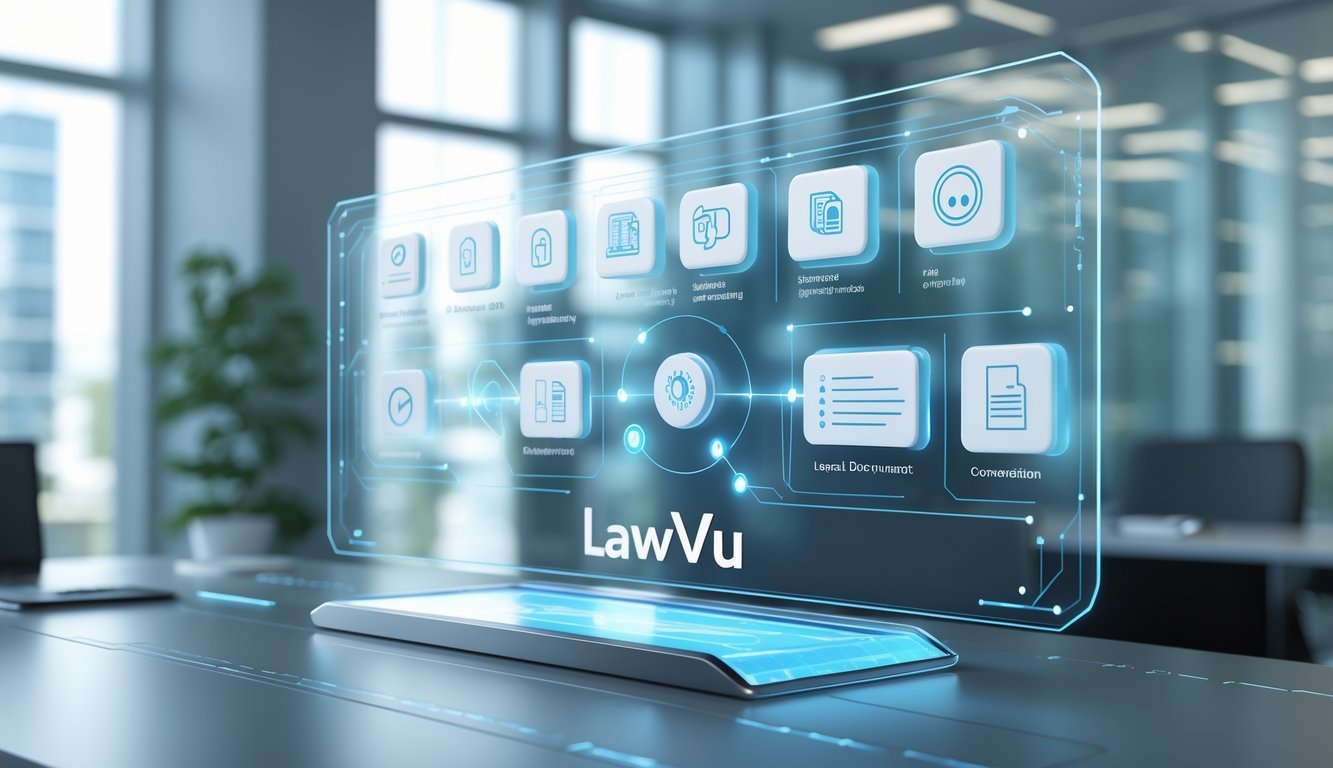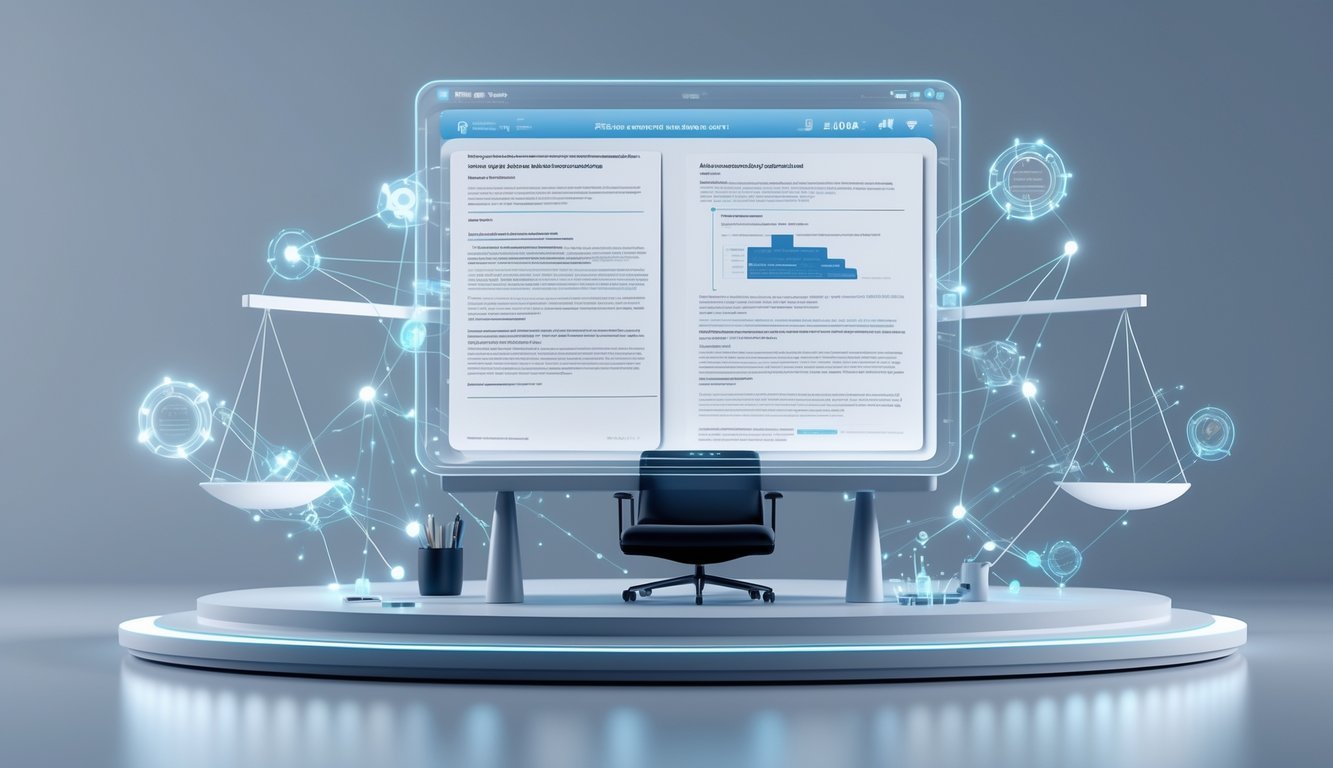The legal world keeps shifting as technology changes how in-house legal teams get through their daily tasks. Law departments want tools that handle contracts, track spending, and manage cases in one spot. LawVu is a cloud-based legal workspace that pulls together matter management, contract handling, spend tracking, and team collaboration—all made for today’s in-house counsel.

Legal teams spend way too much time bouncing between different software just to finish basic tasks. They often lose track of contract deadlines, can’t easily monitor spending, and struggle to keep everyone in the loop on case progress.
LawVu fixes these headaches by giving legal pros a single hub for everything they need.
People have noticed the platform for its straightforward design and how smoothly it connects with other legal tools. LawVu has started working with AI-powered contract review companies, which keeps expanding what it can do.
Legal departments can now take on more work with less hassle and still keep quality high.
Key Takeaways
- LawVu rolls contract management, matter tracking, and spend monitoring into one cloud-based platform for legal teams
- You don’t have to keep switching between different software during the day, which saves time
- AI partnerships make contract review even easier and help legal teams work faster
Core Features and Benefits of the LawVu Legal Platform

LawVu brings together everything legal teams need in a cloud-based workspace. You get organization, security, and automation to make legal operations smoother.
All-in-One Legal Workspace
LawVu gives legal teams a central place for all their core functions. You can manage contracts, track matters, and store documents in one interface.
Legal departments don’t have to jump between apps anymore. You’ll find tools for contract lifecycle management, legal request intake, and matter management right inside LawVu.
Teams can follow matters from the first request through to the end. The system keeps detailed records of every activity and conversation tied to a case or project.
Collaboration gets easier, too. Legal team members and other departments can share documents, assign tasks, and watch progress on all legal work.
Key workspace features include:
- Contract management tools
- Matter tracking systems
- Document repositories
- Task assignment capabilities
- Communication tracking
Cloud-Based Capabilities and Security
Since LawVu runs in the cloud, there’s no need for old-school software installs. Legal teams can log in from anywhere with an internet connection.
LawVu takes security seriously, using encryption protocols and access controls to keep client data and documents safe.
You’ll find features like multi-factor authentication and role-based permissions. Admins decide who sees what and who can do which tasks on the platform.
With cloud infrastructure, backups and disaster recovery happen automatically. Legal departments don’t have to worry about managing their own IT setup.
Security updates roll out through the cloud, so everyone always has the latest protection.
Customization and Automation Features
You can tweak LawVu to fit your department’s needs. Teams adjust workflows, templates, and reports to match how they work.
Automation features cut down on manual tasks. Automated workflows handle things like document approvals, deadline reminders, and status updates.
Teams set up custom templates for documents and contracts, making it quicker to create files and keeping everything consistent.
Automated reporting gives insights into how the legal department is doing. You can track stuff like how fast cases get resolved, contract numbers, and resource use.
Automation benefits include:
- Less manual data entry
- Processes stay consistent
- Deadlines are easier to manage
- Reports are more accurate
- Approval workflows move faster
AI-Powered Contract Review and Strategic Partnerships

LawVu teamed up with Dioptra to bring advanced AI-powered contract review right into its platform. This partnership offers AI-generated redlining, automatic contract revisions, and can save legal teams up to 80% of their time.
Integration With Dioptra
Dioptra & LawVu Partner to Push the Boundaries of AI Contract Review through a smooth integration, so users can get AI-powered contract review without leaving their usual workflow. Dioptra’s AI engine sits right inside the LawVu interface.
Legal teams start contract revisions using the AI review platform, all from within LawVu. No more hopping between software for reviews.
The integration keeps LawVu’s one-stop-shop feel. People can stick with the environment they know, but still tap into powerful AI contract review.
Ali Meredith, Director of Product Partnerships at LawVu, says the integration lets legal teams scale up their impact. The focus is on freeing up lawyers for more strategic work.
AI-Generated Redlining and Contract Revisions
The AI-powered review tool creates redlined contracts based on each team’s needs. Legal pros can make contract changes using their own guidelines and preferences.
Dioptra’s tech builds bespoke playbooks that reflect how each legal team likes to negotiate. The system learns fallback language and negotiation style without any complicated setup.
Key features of AI-generated redlining include:
- Contract markup that matches team preferences
- Suggestions for revisions
- Legal standards applied consistently
- Keeps up with your negotiation strategies
Farah Gasmi, Co-Founder of Dioptra, points out that legal teams get custom, precise redlines. The system spots possible issues while sticking to how each team likes to negotiate.
Risk Mitigation and Review Cycle Optimization
With this partnership, legal teams can spot and handle non-market risks more consistently thanks to automated analysis.
Review cycles speed up because the integrated system standardizes how contracts get checked, but still lets teams add their own requirements.
The system flags risky spots early on, so teams can catch problems before they get too far.
Risk mitigation benefits:
| Feature | Benefit |
|---|---|
| Automated risk detection | Earlier identification of problem areas |
| Consistent standards | Uniform application across all contracts |
| Playbook integration | Matches team risk tolerance |
Legal workflows become more predictable with this kind of risk checking. Teams can spend time on the big stuff, while routine issues get handled automatically.
Improving Turnaround Time and Time Savings
The integration can save legal teams up to 80% of the time they’d spend on contract reviews. Teams get more done, faster, without cutting corners.
Automated first reviews and standardized processes cut turnaround times. The AI handles the routine analysis, and lawyers focus on the tricky negotiations.
Faster contract processing helps legal departments serve clients better and stay efficient. They can keep up with business needs and still review everything carefully.
The partnership isn’t standing still. More customization and automation are coming, and that should make legal workflows even smoother for users.
Frequently Asked Questions

People using LawVu usually want to know about integration, pricing, and AI features. Legal teams also ask about APIs, how LawVu stacks up against competitors, and what real customers think.
How does LawVu integrate with other legal software?
LawVu connects with major legal and business software through its API and built-in integrations. You can link it up with Microsoft Office 365, SharePoint, and Teams for documents and collaboration.
It also works with popular contract management and e-billing systems. You can sync data between LawVu and your CRM, too.
Single sign-on (SSO) is supported through SAML and Active Directory, so teams can log in with their corporate credentials.
What are the pricing options for LawVu?
LawVu uses subscription pricing that depends on the number of users and features you pick. Usually, it’s priced per user, per month, with several tiers.
Enterprise plans come with custom features and dedicated support. Smaller legal teams can get basic plans with the essentials.
You’ll need to request a quote for your organization’s needs. Sometimes, there are extra costs for implementation or training, depending on the package.
What artificial intelligence features does LawVu offer?
LawVu uses AI for contract analysis and risk checks. It relies on machine learning to spot key terms and potential issues in documents.
AI analytics help teams track spending and see how vendors perform. The system can also sort contracts and pull out important dates automatically.
AI features help with legal research and reviewing documents. Other legal research platforms are rolling out generative AI, too, so the industry’s moving fast.
Can you provide an overview of LawVu’s API capabilities?
LawVu gives developers RESTful APIs to connect the platform with other systems. The API lets you sync data for contracts, matters, and vendor info.
You can pull reports or push updates through the API, and webhooks send real-time notifications about contract changes.
There’s API documentation with code samples and test environments. Security is covered with rate limits and authentication.
What are some of the primary competitors to LawVu?
LawVu goes up against legal ops platforms like SimpleLegal and Apperio. These offer similar contract management and spend tracking.
Other names in the mix are LegalTracker, Mitratech, and a range of enterprise legal management tools. Each one has its own focus within legal operations and workflow automation.
The legal tech market keeps shifting with new players and mergers. Organizations usually look at several options to find what fits their needs and tech setup.
What feedback have customers provided in reviews of LawVu?
People usually talk about LawVu’s easy-to-use interface and how the reporting makes their lives a bit simpler. Legal teams seem to like the contract management features and the vendor tracking tools.
A few folks mention that getting everything set up and moving data over takes some real time and patience. How much training you need really depends on your team’s size and how tech-savvy everyone is.
Reviews also bring up the customer support, which tends to be pretty responsive, and the steady flow of platform updates. Users like that they can tweak workflows to fit how their legal teams already work.

